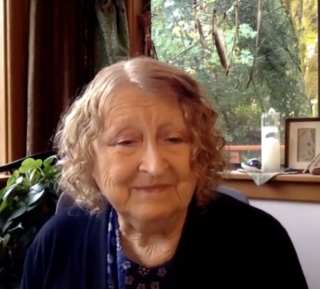Conversio Virium (CV), one of the oldest university student-run BDSM education groups in the United States, is the central Columbia University student organization that represents the college's collective population who engage in consensual BDSM and related activities. [1] [2] CV is a not-for-profit group that advocates strongly for freedom of sexual self-expression and is particularly concerned with creating a safe and welcoming environment for young people to explore their interest in alternative sexual practices, especially consensual sexual dominance and submission (D/s). [3] CV participates in many of New York City's sexuality community events alongside similar organizations such as The Eulenspiegel Society.
In 1994, soon after Conversio Virium's inception, a Columbia University Christian group accused CV of violating its own constitution and as a result the university expelled CV from its grounds.[ citation needed ] The accusations were eventually proven untrue and CV was reinstated as an official Columbia University student organization.[ citation needed ] In the process, CV gained many allies from both the BDSM community and elsewhere, including Robert B. Chatelle, board member of the National Writers Union at the time, who wrote to CV offering support. [4]
In 2007, Conversio Virium made national television headlines when Fox News invited Ann Coulter [5] to comment on an article published in the New York Daily News about the university's sex clubs called Wild Sex 101, [6] in which the club and the university was criticized. [7]
Conversio Virium's records are housed at the Leather Archives & Museum in Chicago. [8]

BDSM is a variety of often erotic practices or roleplaying involving bondage, discipline, dominance and submission, sadomasochism, and other related interpersonal dynamics. Given the wide range of practices, some of which may be engaged in by people who do not consider themselves to be practising BDSM, inclusion in the BDSM community or subculture often is said to depend on self-identification and shared experience.

Human sexual activity, human sexual practice or human sexual behaviour is the manner in which humans experience and express their sexuality. People engage in a variety of sexual acts, ranging from activities done alone to acts with another person in varying patterns of frequency, for a wide variety of reasons. Sexual activity usually results in sexual arousal and physiological changes in the aroused person, some of which are pronounced while others are more subtle. Sexual activity may also include conduct and activities which are intended to arouse the sexual interest of another or enhance the sex life of another, such as strategies to find or attract partners, or personal interactions between individuals. Sexual activity may follow sexual arousal.
In BDSM culture, a play party is a social event in which attendees socialize with like-minded people and engage in BDSM activities. Generally there is an area for drinking and socializing, an area for changing into more appropriate attire, and an area for "play" or sexually arousing activities.

Leather subculture denotes practices and styles of dress organized around sexual activities that involve leather garments, such as leather jackets, vests, boots, chaps, harnesses, or other items. Wearing leather garments is one way that participants in this culture self-consciously distinguish themselves from mainstream sexual cultures. Many participants associate leather culture with BDSM practices and its many subcultures. For some, black leather clothing is an erotic fashion that expresses heightened masculinity or the appropriation of sexual power; love of motorcycles, motorcycle clubs and independence; and/or engagement in sexual kink or leather fetishism.

Risk-aware consensual kink is an acronym used by some of the BDSM community to describe a philosophical view that is generally permissive of certain risky sexual behaviors, as long as the participants are fully aware of the risks. This is often viewed in contrast to safe, sane, and consensual which generally holds that only activities that are considered safe, sane, and consensual are permitted.

The National Coalition for Sexual Freedom (NCSF) is an American sex-positive advocacy and educational organization founded in 1997. NCSF has over one hundred coalition partners, and over sixty supporting members. NCSF advocates on behalf of adults involved in alternative lifestyles with respect to sexuality and relationship composition, specifically for tolerance and non-discrimination of those so identified, as well as education for adults involved in such lifestyles. The organization's main office is in Baltimore, Maryland.

The Eulenspiegel Society, also known as TES, is the first BDSM organization founded in the United States. It was founded in 1971 and based in New York City.
Sex-positive feminism, also known as pro-sex feminism, sex-radical feminism, or sexually liberal feminism, is a feminist movement centering on the idea that sexual freedom is an essential component of women's freedom. They oppose legal or social efforts to control sexual activities between consenting adults, whether they are initiated by the government, other feminists, opponents of feminism, or any other institution. They embrace sexual minority groups, endorsing the value of coalition-building with marginalized groups. Sex-positive feminism is connected with the sex-positive movement. Sex-positive feminism brings together anti-censorship activists, LGBT activists, feminist scholars, producers of pornography and erotica, among others. Sex-positive feminists believe that prostitution can be a positive experience if workers are treated with respect, and agree that sex work should not be criminalized.

Dorothy "Dossie" Easton, who has also written under the name Scarlet Woman, is an American author and family therapist based in San Francisco, California.

Gloria Brame is an American sexologist, writer and sex therapist based in Athens, Georgia. She is a member of the American College of Sexologists, and clinical sexologist. Her sex therapy practice specializes in consensual BDSM, sexual fetishism and sexual dysfunction.

This glossary of BDSM terms defines terms commonly used in the BDSM community.

Dominance and submission (D/s) is a set of behaviors, customs, and rituals involving the submission of one person to another in an erotic episode or lifestyle. It is a subset of BDSM. This form of sexual contact and pleasure has been shown to please a minority of people.
Cuffs is a student group at Iowa State University that was formed in 2000 to discuss issues related to bondage, discipline, domination and sadomasochism.

Consent within BDSM is when a participant gives their permission for certain acts or types of relationships. It bears much in common with the concept of informed consent and is simultaneously a personal, ethical and social issue. It is an issue that attracts much attention within BDSM, resulting in competing models of consent such as safe, sane and consensual and risk-aware consensual kink. Observers from outside the BDSM community have also commented on the issue of consent in BDSM, sometimes referring to legal consent which is a separate and largely unrelated matter. However, the presence of explicit consent within BDSM can often have implications for BDSM and the law and, depending on the country the participants are in, may make the differences between being prosecuted or not.
In human sexuality, kinkiness is the use of sexual practices, concepts or fantasies that are not conventional. The term derives from the idea of a "bend" in one's sexual behaviour, to contrast such behaviour with "straight" or "vanilla" sexual mores and proclivities. It is thus a colloquial term for non-normative sexual behaviour. The term "kink" has been claimed by some who practice sexual fetishism as a term or synonym for their practices, indicating a range of sexual and sexualistic practices from playful to sexual objectification and certain paraphilias. In the 21st century the term "kink", along with expressions like BDSM, leather and fetish, has become more commonly used than the term paraphilia. Some universities also feature student organizations focused on kinks, within the context of wider LGBTQ concerns.

FetLife is a social networking website that serves people interested in BDSM, fetishism, and kink. It distinguishes itself from competitors by emphasizing itself as a social network rather than a dating site.

Criminalization of consensual BDSM practices is usually not with explicit reference to BDSM, but results from the fact that such behavior as spanking or cuffing someone could be considered a breach of personal rights, which in principle constitutes a criminal offense. In Germany, Netherlands, Japan and Scandinavia, such behavior is legal in principle. In Austria the legal status is not clear, while in Switzerland and parts of Australia some BDSM practices can be considered criminal.
Feminist views on BDSM vary widely from acceptance to rejection. BDSM refers to bondage and discipline, dominance and submission, and Sado-Masochism. In order to evaluate its perception, two polarizing frameworks are compared. Some feminists, such as Gayle Rubin and Patrick Califia, perceive BDSM as a valid form of expression of female sexuality, while other feminists, such as Andrea Dworkin and Susan Griffin, have stated that they regard BDSM as a form of woman-hating violence. Some lesbian feminists practice BDSM and regard it as part of their sexual identity.